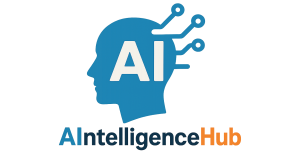
Steering AI ethics in healthcare means prioritizing patient privacy, guaranteeing data security, and obtaining genuine consent. You need to tackle bias by using diverse datasets, making your algorithms transparent, and engaging with varied communities. Balancing innovation with ethical integrity is essential, prioritizing patient autonomy and responsible practices. Regulatory awareness guarantees legal compliance, maintaining trust and ethical standards. Embrace accountability; your attention to these aspects will guide you in exploring the complex landscape of AI in healthcare further.
Understanding Patient Privacy and Data Security

Understanding patient privacy and data security is vital in the domain of healthcare, especially as AI technologies become more integrated into medical practices. You must guarantee that patient consent is sincerely obtained and respected. It’s not just about ticking a box; it’s about ensuring individuals understand what they’re consenting to, including how their data is used and who owns it. The concept of data ownership becomes essential. Patients should feel empowered and informed about their rights over personal health information. As AI systems handle vast amounts of sensitive data, maintaining transparency in data practices helps build trust. By prioritizing ethical considerations in AI deployment, you can protect patient dignity and foster a healthcare environment where individuals feel safe and respected.
Addressing Bias and Fairness in AI Algorithms
When you consider the role of AI in healthcare, addressing bias and fairness is vital to guarantee equitable treatment for all patients. You must focus on securing data diversity so that algorithms don’t perpetuate existing disparities or overlook minority groups. By actively mitigating algorithmic discrimination, you’re contributing to a healthcare system that’s more inclusive and just.
Ensuring Data Diversity
Although AI has the potential to revolutionize healthcare, guaranteeing data diversity is essential to addressing bias and fairness in AI algorithms. You must focus on data representation by using inclusive datasets that reflect varied demographics. Consider cultural relevance to avoid skewed outcomes. Thoughtful sampling techniques can help build a thorough dataset. Engage with communities to understand their needs and conditions. Ethical sourcing of data guarantees that information is gathered responsibly, promoting equitable access to AI advancements.
- Prioritize diverse data collection to improve health outcomes.
- Foster community engagement to grasp local health disparities.
- Apply demographic considerations to bridge health equity gaps.
- Guarantee cultural relevance in AI applications to respect patient differences.
- Use ethical sourcing to build trust in AI solutions.
Mitigating Algorithmic Discrimination
Building on the foundation of diverse data collection, addressing algorithmic discrimination in AI healthcare systems demands a closer examination of bias and fairness. You need to engage in intersectional analysis to understand how various social identities impact healthcare outcomes. By doing so, you can identify and rectify biases embedded within AI algorithms. It’s vital to guarantee these systems don’t inadvertently reinforce existing disparities.
To achieve equitable access, you should focus on creating algorithms that recognize and adapt to the diverse needs of all patient groups. This means continuously auditing AI systems and incorporating diverse stakeholder feedback. By fostering an empathetic approach, you can guarantee AI in healthcare not only advances technology but also upholds the principles of fairness and equality for everyone.
Ensuring Transparency and Explainability in AI Systems
As AI systems become increasingly integral to healthcare, guaranteeing transparency and explainability isn’t just a technical necessity—it’s a moral imperative. You need explainable models that foster user trust and informed consent through transparent processes. Engaging stakeholders is essential; their insights help refine communication strategies and interpretability frameworks. By enhancing algorithmic literacy, you empower users to understand AI’s impact on their health.
Explainable AI in healthcare is a moral imperative for building trust and ensuring informed patient consent.
- Explainable models: Guarantee clarity in AI decision-making.
- Transparent processes: Build trust through openness.
- Informed consent: Equip users with knowledge to make decisions.
- Algorithmic literacy: Educate users on AI’s workings.
- Stakeholder engagement: Foster collaboration for ethical AI use.
Navigating this landscape requires empathy and commitment to ethical standards, guaranteeing AI’s benefits are realized without compromising patient welfare.
Balancing Innovation With Patient Consent
While transparency and explainability form the bedrock of ethical AI in healthcare, the real challenge lies in harmonizing innovation with patient consent. You must prioritize patient autonomy and guarantee informed consent by embedding robust ethical frameworks. This requires fostering digital literacy so patients understand AI’s role in their care. It’s vital to engage stakeholders, including patients, in developing consent management systems that are clear and accessible. By doing so, you build trust, crucial for patient empowerment. Consider how AI innovations impact patient choices and rights, guaranteeing they align with their values. Remember, ethical AI isn’t just about technology—it’s about respecting individuals. Balancing these elements strengthens healthcare’s foundation, making certain innovation benefits everyone without compromising patient rights.
Navigating Regulatory and Legal Challenges

Steering through the regulatory and legal challenges of AI in healthcare is a complex endeavor, yet it’s essential for guaranteeing ethical compliance and patient safety. You’ll need to navigate a maze of regulatory compliance and legal frameworks that can seem overwhelming. Here’s what to reflect on:
- Understanding evolving regulations: Stay informed about changes in healthcare standards and AI-specific guidelines.
- Data protection and privacy: Guarantee patient data is handled within legal frameworks to maintain trust.
- Risk assessment: Regularly evaluate potential legal risks associated with AI technologies.
- Interdisciplinary collaboration: Work with legal experts to align AI innovations with regulatory requirements.
- Documentation and transparency: Maintain clear records of AI processes to simplify regulatory reviews.
Evaluating the Impact on Healthcare Professionals
When you consider AI’s influence on healthcare, you’re likely aware that it’s reshaping job roles, creating both opportunities and uncertainties for professionals. This transformation requires you to navigate ethical decision-making challenges, as AI systems may not always align with human values or patient care nuances. Balancing technological advancements with your professional judgment is essential to ensuring that AI serves as a complement, not a replacement, to your expertise and empathy.
Job Roles Transformation
As AI technologies increasingly permeate healthcare, the transformation of job roles presents both challenges and opportunities for professionals in the field. You’ll notice a shift in responsibilities, requiring adaptation and growth. Job roles evolution doesn’t mean obsolescence; instead, it invites skillset enhancement. Embrace the change with an open mind, recognizing the potential for enriched patient care.
- Embrace continuous learning: Staying updated with AI trends is vital.
- Focus on patient interaction: AI handles data, but empathy remains human.
- Develop tech-savvy skills: Understanding AI tools empowers you.
- Adapt to collaborative roles: Work seamlessly with AI systems.
- Prioritize ethical use: Guarantee AI benefits all stakeholders.
Your role evolves, but your core mission of caring for patients remains steadfast.
Ethical Decision Challenges
Healthcare professionals find themselves traversing a landscape where the integration of AI presents new ethical decision-making challenges. You’re often caught between technological advancements and the moral implications they bring. These ethical dilemmas can strain your conscience as you endeavor to balance innovation with patient care. The pressure of ensuring AI decisions align with human values can be overwhelming.
| Challenge | Emotional Impact |
|---|---|
| Balancing AI with empathy | Stress and uncertainty |
| Data privacy concerns | Anxiety and distrust |
| AI-induced job shifts | Fear of obsolescence |
You need to contemplate how AI’s recommendations might conflict with traditional medical ethics. Steering through these waters requires not only technological understanding but also a deep empathy for patients’ needs and concerns. As you adapt, ethical decision-making becomes more than a protocol; it’s a personal journey.
Promoting Accountability and Responsibility in AI Deployment
Although the rapid integration of AI in healthcare offers significant benefits, it also demands a robust framework for accountability and responsibility to guarantee ethical deployment. You must confirm that responsible innovation is at the core of AI solutions. Accountability frameworks aren’t just a checkbox; they’re essential for trust and safety in healthcare. Consider these key elements:
Responsible innovation is crucial for ethical AI in healthcare, ensuring trust and safety through accountability.
- Clear guidelines for ethical AI use in clinical settings.
- Transparent reporting mechanisms to track AI outcomes.
- Regular audits to assess compliance with ethical standards.
- Inclusive stakeholder engagement to incorporate diverse perspectives.
- Continuous education and training for healthcare professionals.
These steps create a culture where responsibility is shared, confirming that AI tools enhance patient care without compromising ethical standards. Embrace these measures for a future where technology serves humanity with integrity.
Assessing Long-term Implications for Patient Care
Building on the foundation of accountability and responsibility, it’s essential to contemplate the long-term implications AI might have on patient care. You must consider how longitudinal studies can illuminate patient outcomes and guarantee care continuity within ethical frameworks. Engaging stakeholders in this dialogue helps navigate technological adaptation, balancing benefits with potential risks. Risk assessment becomes vital, identifying unforeseen challenges and fostering informed decision-making.
| Aspect | Consideration |
|---|---|
| Longitudinal Studies | Track patient outcomes |
| Care Continuity | Maintain consistent care |
| Ethical Frameworks | Guide AI integration |
| Stakeholder Engagement | Foster collaborative dialogue |
Patient education empowers individuals, equipping them to understand AI’s role in their care. By addressing these aspects, you can more effectively manage AI’s integration into healthcare, guaranteeing it benefits patients without compromising ethical standards.
Frequently Asked Questions
How Does AI Influence Healthcare Cost Management?
You’re probably wondering how AI influences healthcare cost management. It drives cost reduction by optimizing resource allocation, ensuring every resource is used efficiently. AI analyzes data to predict patient needs, reducing unnecessary treatments and hospital stays. It also streamlines administrative processes, cutting down on overhead costs. By providing real-time insights, AI helps you allocate resources where they’re needed most, ultimately leading to smarter, more economical healthcare solutions.
Can AI Improve Patient Wait Times in Hospitals?
Can AI really improve patient wait times in hospitals? Absolutely. With AI scheduling and predictive analytics, you can streamline appointments and efficiently allocate resources. AI anticipates patient flow, adjusts schedules, and minimizes bottlenecks, ensuring timely care. It’s about understanding patterns, not just numbers. By empathizing with patients’ needs and clinicians’ workflows, AI offers a nuanced solution that respects everyone’s time. Isn’t that what healthcare’s all about—caring efficiently and compassionately?
What Role Does AI Play in Personalized Medicine?
AI’s role in personalized medicine is essential, as it helps you by analyzing genetic profiling data to tailor treatment customization. You’ll find that AI can sift through vast genetic information, identifying specific markers that influence how you respond to treatments. This empowers healthcare providers to offer more precise and effective care. By understanding your unique genetic makeup, AI guarantees treatments are not just generic but truly personalized to your needs and conditions.
How Is AI Advancing Remote Patient Monitoring Technologies?
AI’s revolutionizing remote patient monitoring by integrating wearable devices to track essential signs in real-time. You can see how these devices collect and analyze data, providing actionable insights for healthcare professionals. However, it’s imperative to address data security challenges to guarantee patient confidentiality. AI’s nuanced role involves balancing technological advancement with ethical considerations, making sure you feel safe and understood, knowing your health data’s both protected and used to enhance care.
What Are the Ethical Considerations for AI in Mental Health Treatment?
When you consider AI’s role in mental health treatment, think about informed consent, data privacy, and patient autonomy. Each element shapes the therapeutic relationship and demands scrutiny. Bias mitigation and algorithm transparency guarantee fairness and trust, allowing AI to support, not overshadow, human care. You can’t ignore these ethical considerations; they’re essential for respecting patient rights and enhancing mental health outcomes. Engage thoughtfully, guaranteeing AI complements rather than compromises therapy.
Conclusion
As you navigate the exciting world of AI in healthcare, it’s coincidental that the very innovations promising to revolutionize patient care also demand your careful attention to ethics. Balancing patient privacy with innovation, addressing biases, and ensuring transparency all converge to shape the future of healthcare. By prioritizing accountability and understanding the long-term impacts, you can harness AI’s potential responsibly, ensuring it benefits patients and professionals alike without compromising ethical standards.


